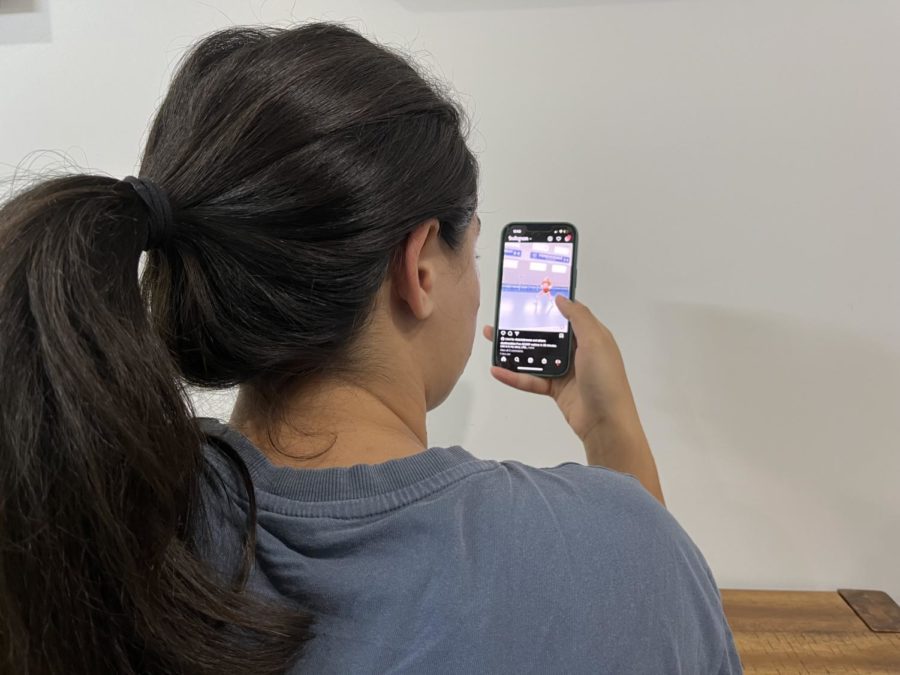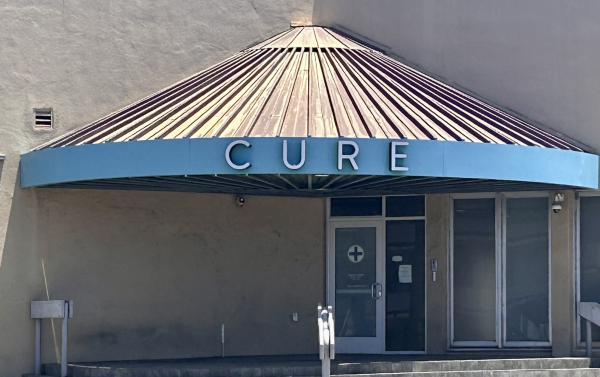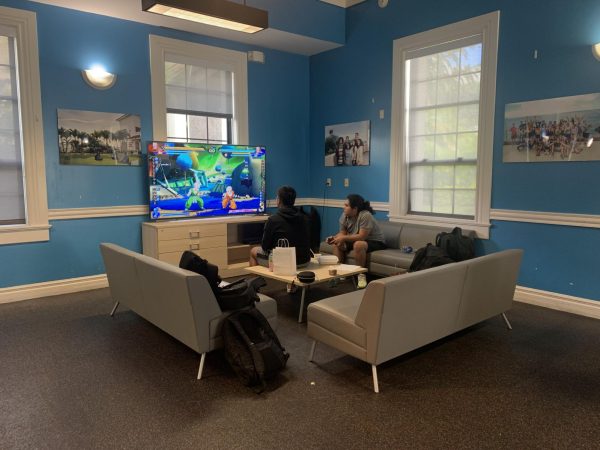The Devastating ‘Reality’ of Scrolling Instagram
I’m sure what you can expect from a typical Gen-Z college student is that I spend a lot of my time endlessly scrolling through the infamous social media app Instagram.
I have never had Instagram. I never want Instagram. I’ve never felt the dire need to get Instagram. And I don’t feel like I am missing out by not having the app.
I realize as a 22-year-old it sounds perhaps abnormal, but based on my friends, sisters, and the Instagram community responses to having the app, it’s something I’m happy to avoid. While many users see Instagram as an opportunity to stay connected with friends and share momentary, edited bliss; I see it as a pernicious app that continues to prove itself to be ultimately damaging to this generation.
“Instagram is one of the most toxic, if not the most toxic social media platform there is,” said 20-year-old Chaminade sophomore Aaliyah Martin, who admits to spending nearly 15 or so hours a week just scrolling on the app. “It can be a really fun app to have to stay in touch with the news and friends but as a young woman, it can be especially damaging to your mental health.”
I’ve seen that damage firsthand.
Growing up I never had Instagram. My twin sister, Brooklen, however, did. We were around 13- or 14-years-old when she decided to get the app, and the sole reason she got Instagram was to follow teen-pop sensation, Justin Bieber. Initially when she first was on the app she saw it as a fun way to connect with her friends and of course, keep up with Bieber’s everyday posts. As we transitioned into high school, however, I noticed how harmful having Instagram was for self-esteem and confidence.
Often she complained to my me and my mom about how low she felt in terms of self-esteem and unconfident she felt in comparison to what she was seeing online. Being one of very few POC in a predominantly white area of Utah had a big impact on confidence and self-esteem online as it did offline. The ability to compare what she looked like, what she had and did not have, and what the beauty standard was ultimately damaging to her mental well-being. Having Instagram during that time made Brooklen feel like she needed to change in order to be accepted and fit in.
Even though I experienced feelings of inadequacy and comparison offline, it was and is nothing compared to the effects of online comparison.
Self-esteem and confidence are the two most heavily impacted factors because of the ability to compare yourself and your life to others based on what you’re seeing online. That also leaves me to ask the question, how much of what you see on Instagram is real? How do you know the “poster” hasn’t edited their pictures and “facetuned” and photoshopped their appearance?
I do not want to be subjected to content that is catered, tailored, and edited to fit the aesthetically, fake persona of “having your life together.”
Due to what I had observed from my twin’s experience growing up, not having Instagram during those years will make me forever grateful I never had it.
On Instagram, users care a lot (even if they don’t tell you they do) about the number of followers they have and the likes they receive on a post, and that is a problem. Being able to compare the number of likes you receive on a post in comparison to another user’s leads to detrimental self-esteem issues.
However, Instagram did a feature that enables a user to hide the number of likes that can be seen under a post. This is an improvement, but it still doesn’t solve the problem altogether.
“Even though Instagram has the hiding likes feature, the problem is that I can still see how much I receive on a post even though other[s] cannot,” said 18-year-old freshman Marley Kahuhu, who spends about “twentyish” hours on the app.
The ability of Instagram to practically set up the standards for how you should look, what you should wear, what to post, and what not to post has made it difficult for young adults to keep up.
“Social media standards have made it hard to love my body and my mind at times,” Kahuhu said. “The standard to have your life perfect and your body even better feels impossible to even keep up with.”
Body image issues and body dysmorphia is one of the most common responses from users that have been one of the outcomes of having the app. Even though users have said that the app is awesome to have because it allows for self-expression and connection, it still leads to users feeling less than.
“I’ve gone back and forth between deleting the app or keeping it,” said 20-year-old senior Jackie Martinez. “I enjoy having it because I like being able to keep up with my friends and family, but in general having Instagram makes it challenging to maintain your mental health because of all the stuff you see on there.”
Consistently seeing what others are up to can lead to FOMO (fear of missing out) or feeling like you’re behind in life. Comparing yourself or your life to others based on what you’re seeing through the screen that is most often edited and curated, never ends well. A lot of the content you see is fake and edited to gain likes and social status. It’s fake. The result, as mentioned in the APA article, “ … leads to false social comparison when users contrast their appearance with idealized images.”
Which is one of the main reasons why I just detest the app altogether. The ability of users — specifically influencers and celebrities — to post edited and photoshopped images of themselves and not see the harm that it does to others is absolutely insane. Teenagers and young adults look at this content and aspire to look like that image. To be that image. When in all actuality, it’s a sham that results in creating unrealistic expectations of a person.
As APA also notes, “ … Instagram users who engage in digital status and social comparison tend to experience negative psychological outcomes. Such behaviors have been linked to increases in depressive symptoms, social anxiety, and body image concerns across age groups, as well as decreases in self-esteem.”
I understand the love-hate relationship most users have with the app. It is a convenient way to keep up with friends, family, and the news. Most users have said that is the way they stay updated with what’s currently going on in the world.
It is also a great app for users to be able to express themselves in form of pictures. It’s a piece of themselves that they are sharing with their followers that also takes a great amount of vulnerability to be able to do so. It’s a great way to network and market yourself which is something that a lot of users use the app for today. But I suppose that even though users enjoy using the app, it’s not worth deleting even though their mental health is declining.
I do have TikTok, Pinterest (if you consider that a form of social media), and Snapchat. I enjoy having Tiktok and even though there is room to say that TikTok is almost the same in terms of posting, it has different intentions than Instagram. Where Instagram is used to market oneself, Tiktok is used to share videos with friends.
Even though Instagram has some bright points, the overall side effects of using the app are self-destructive and harmful to mental health. That reason is enough for me to keep away from it altogether. Truthfully, my mental health is already declining so I’d like to have some control of it if I can help it. But hey, if Instagram makes you happy, then go ahead and scroll away. However, if it doesn’t I guess that’s for you to decide.
Ultimately, Instagram will continue to damage the confidence of this generation, which is why I will continue to happily avoid it.









